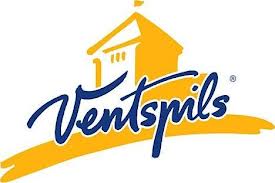| PROJECT OBJECTIVE:
Having set the ambition to develop Ventspils into a European level hub for smart technologies, on 29 May 2013 the leaders of 18 organisations representing Ventspils City Council, municipal institutions, entrepreneurs and higher education institutions signed the Memorandum of Understanding regarding the Development of Information and Communication Technologies Sector in Ventspils (hereinafter – MoU). The drafting and implementation of ICT Sector Development Strategy (hereinafter – Strategy), the enhancement of ICT sector, attraction of new ICT companies, ensuring the availability of highly skilled labour force and appropriate ICT infrastructure were defined in the MoU as the key tasks.
Referring to the above, Dynamic University was invited by Ventspils City represented by the municipal institution “Ventspils Digital Centre” to lead and participate in the drafting of Ventspils ICT Sector Development Strategy and Action Plan 2014-2020 (hereinafter – Strategy).
PROJECT SOLUTION AND RESULT
Within the framework of the Strategy development and taking into account given assignment, i.e. to prepare detailed, justified development strategy of ICT sector for 2014-2020, appropriate for the situation of Ventspils city and aimed at achievement of the over-arching objective – to make Ventspils as a European level centre of smart technologies, a Working Group represented by field experts, as well as a High Profile Advisory Group were established.
For the needs of ensuring that the Strategy accounts for the latest global trends and is based on a proper analysis of all areas that are vital for ICT sector development (ICT entrepreneurship, funding and support, human resources and education, R&D, ICT infrastructure and environment), a series of research activities were undertaken and particular services by Working Group experts were delivered:
- analysis of the current situation in ICT and related areas (such as education and labour force, ICT infrastructure, R&D, financing, business support and public services, urban environment);
- analysis of ICT trends locally and globally (incl. assessment of global rankings and competitive analysis);
- SWOT analysis;
- identification of business niches and specialisation areas;
- identification of critical success factors;
- identification and development of 3 potential growth scenarios;
- strategic road-map development;
- determination of KPIs and targets for the selected goals;
- detailed investment and action plan for a selected growth scenario;
- cost-benefits analysis, impact and risk assessment;
- development of the operational model for the Strategy implementation and management.
The main methodological tools which were applied are:
- Data collection and analysis;
- Desk research;
- Survey and interviews of the Latvian and North European entrepreneurs;
- Stakeholder interviews;
- Benchmarking study of selected ICT clusters;
- Survey of Ventspils University College IT Faculty students;
- Survey of students of IT study programmes of the Latvian HEIs.
The developed Strategy provides all encompassing vision and detailed road-map which is structured around 5 goals, 17 focus areas and in the total of 30 tasks and 105 activities to be undertaken by year 2020 with the following expected major outputs:
|
ICT Entrepreneurship
- Increasing the number of active ICT companies in Ventspils more than twice (67[1] in 2012 -> 150 in 2020) and quintupling the number of employed in ICT (217 in 2012 -> 1,150 in 2020), including local start-ups, spin-offs, subsidiaries of local and foreign companies (incl. multinationals), and envisaging the attainment of 10% of the overall economy of the city in a long run.
- Achieving the critical mass of ICT sector stakeholders by establishing Ventspils ICT Cluster that, among other things, would lead to national and international recognition and visibility of Ventspils as a city with developed ICT sector.
Funding and Support
- Increasing the number of annually supported ICT companies more than 3 times (25 in 2012 -> 85 in 2020) by ensuring the operation of the Pre-Incubator, Business Incubator, Technology Park, and the Accelerator and providing support to ICT start-ups and spin-offs.
- Ensuring that Ventspils becomes the first city in the Baltics that launches and operates an ICT pilot project programme for entrepreneurs.
Human Resources and Education
- Enhancing the pupil interest in STEM subjects in general education institutions, incl. becoming the first municipality in Europe where all pupils from Grade 1 already are provided with the opportunity to master programming skills in general education establishments.
- Almost doubling the overall number of students in Ventspils (1,440 in 2012 -> 2,150 in 2020), and almost tripling the number of ICT students (275 in 2012 -> 786 in 2020) and enhancing the internationalisation and international recognition of higher education in Ventspils.
- Introducing new ICT study programmes in Ventspils Vocational School and Ventspils University College to meet the demand of ICT companies for qualified workforce.
Research and Development
- Almost doubling the number of R&D staff (66 in 2012 -> 111 in 2020) and R&D students (48 in 2012 -> 80 in 2020), consequently almost increasing the research publication outputs (224 in 2012 -> 374 in 2020), the number of patents and patent applications (24 in 2012 -> 40 in 2020) and commercialisation of inventions.
ICT Infrastructure and Environment
- Expanding the area of the available high quality and reasonably priced ICT infrastructure provided with power and data networks of required capacities for production, offices and data centres (9,400 m2 in 2012 -> 22,825 m2 in 2020).
- Improving the accessibility of Ventspils by ensuring regular flights to Riga and Stockholm therefore creating preconditions for the placement of subsidiaries of international ICT companies in Ventspils.
[1] Have been active during last 3 years in Ventspils (with turnover, employees or profit/loss in 2010, 2011 or 2012).

|







